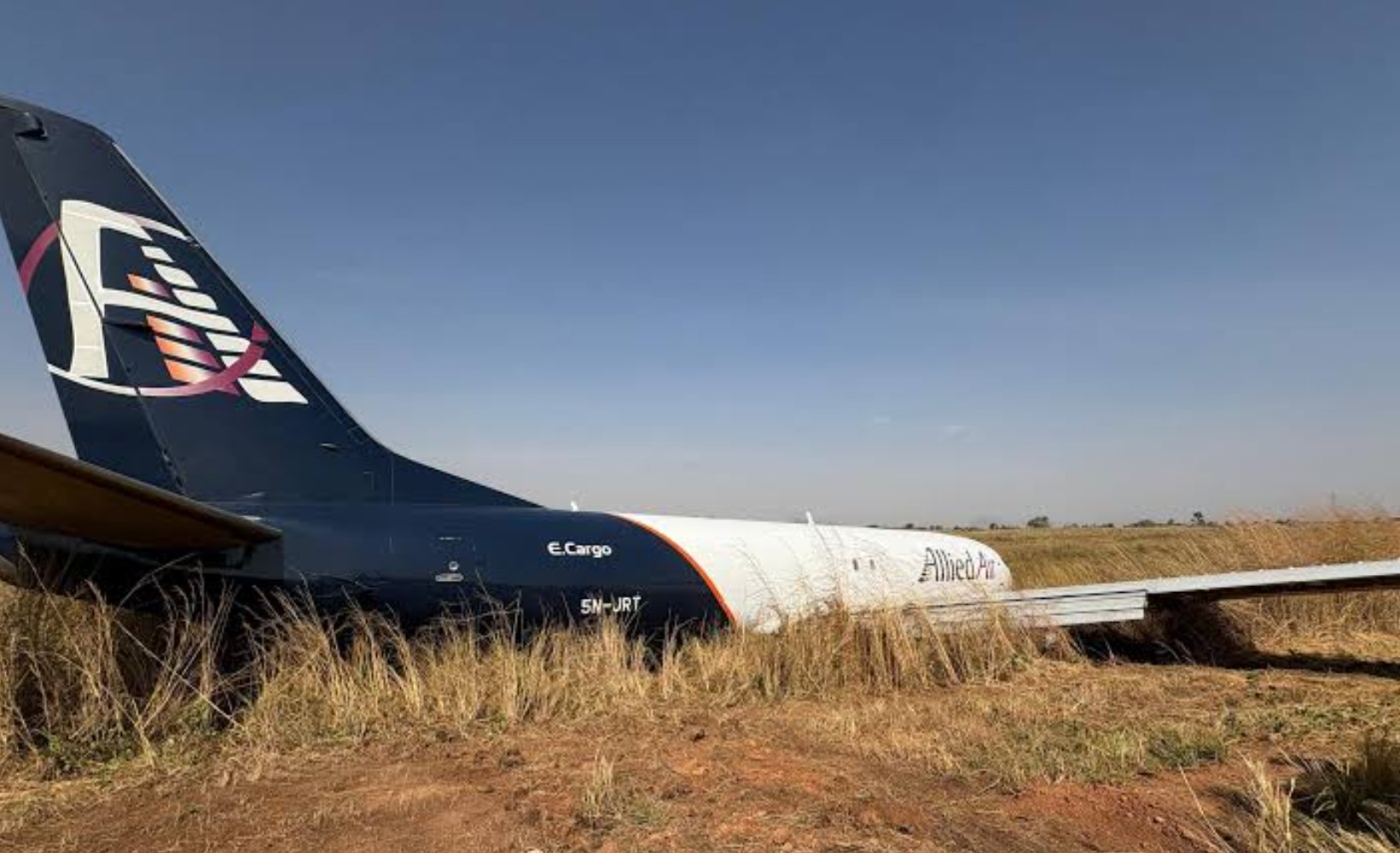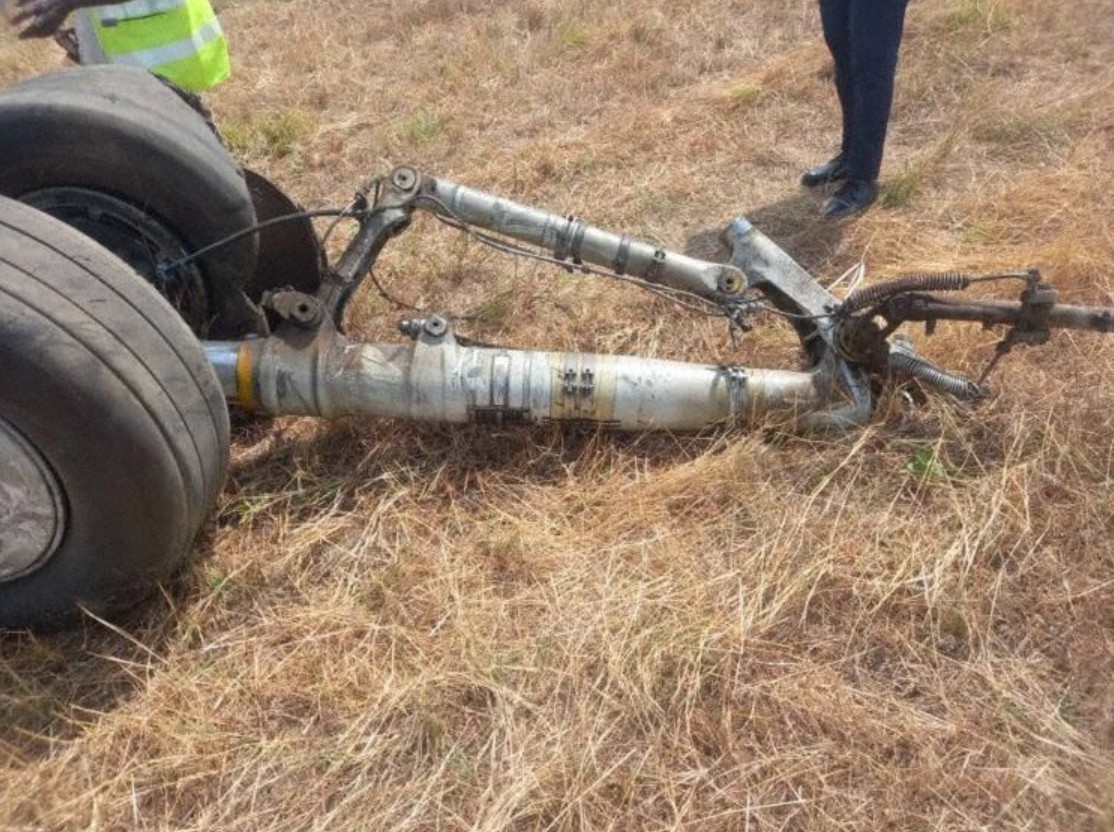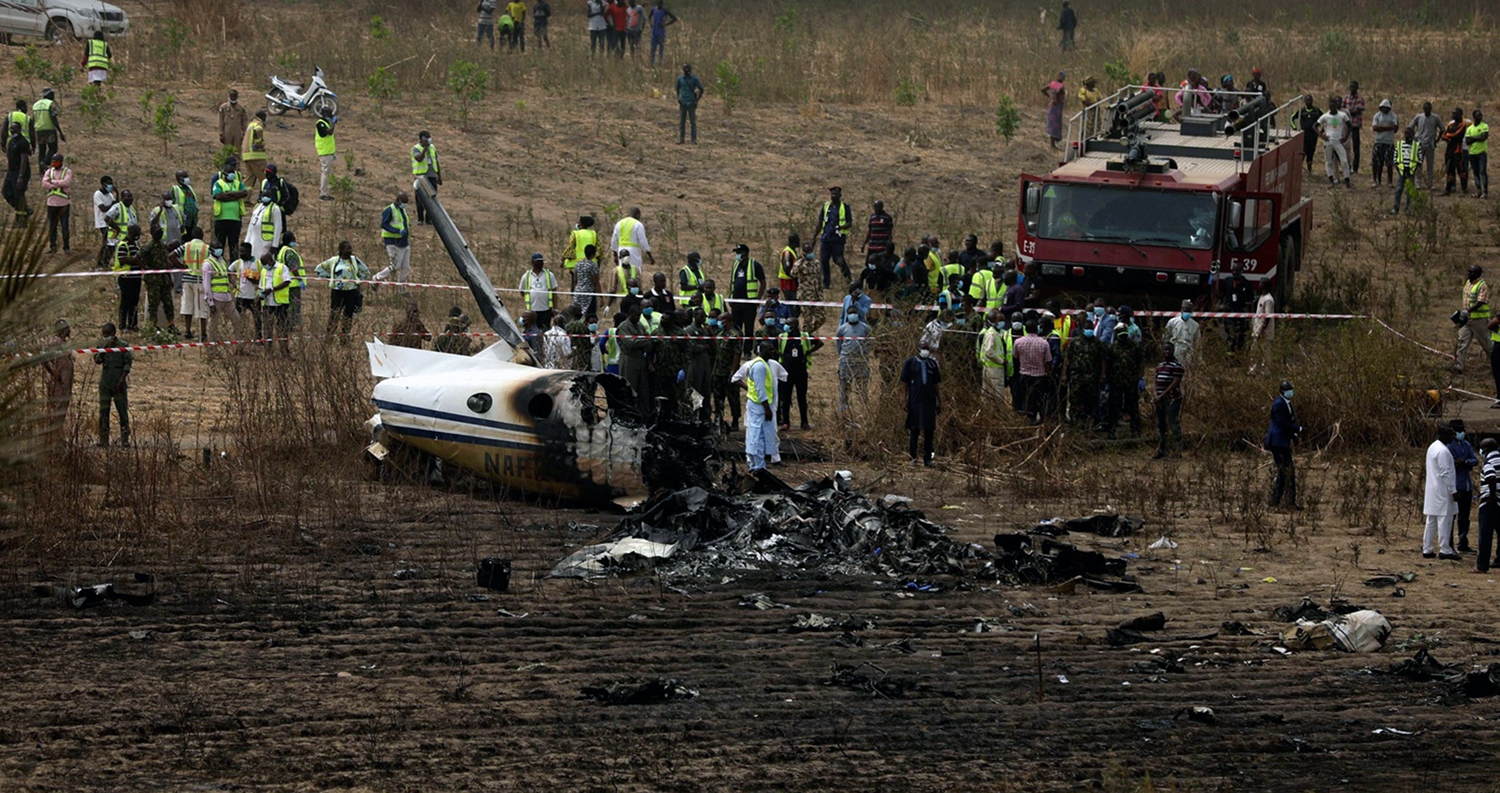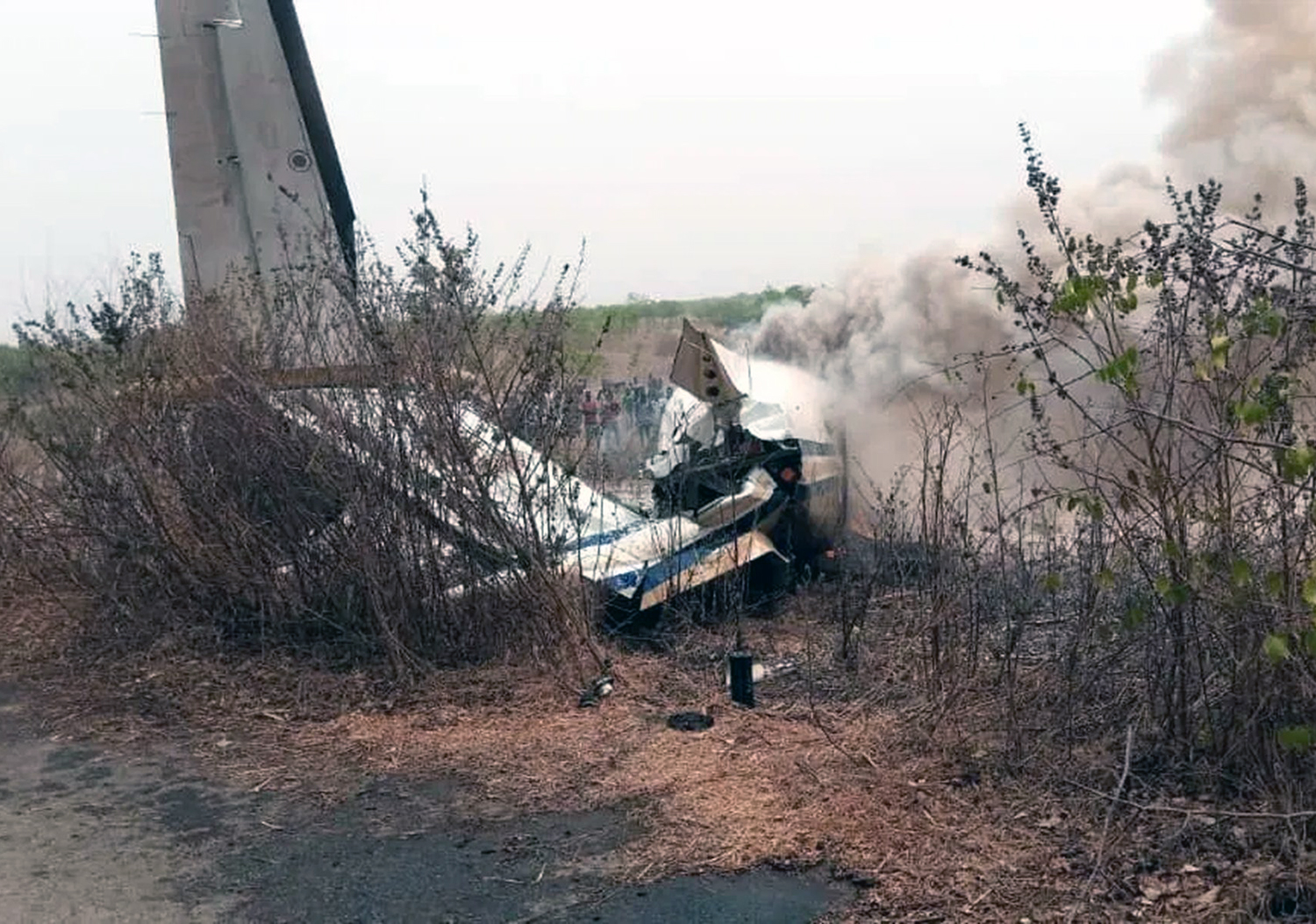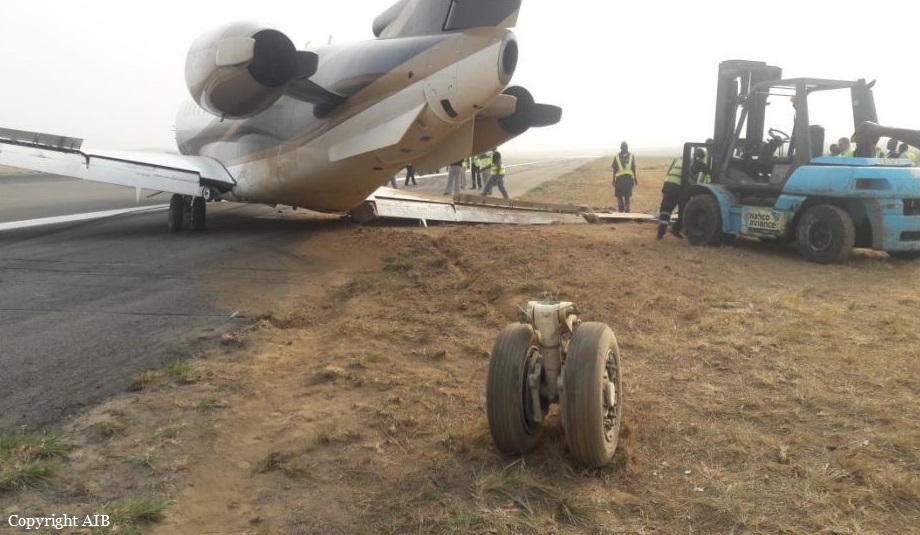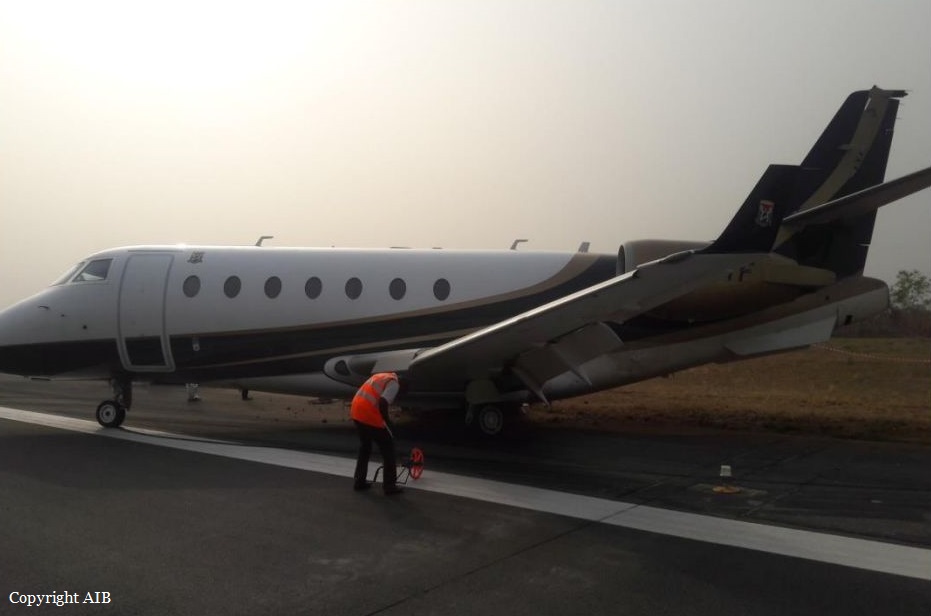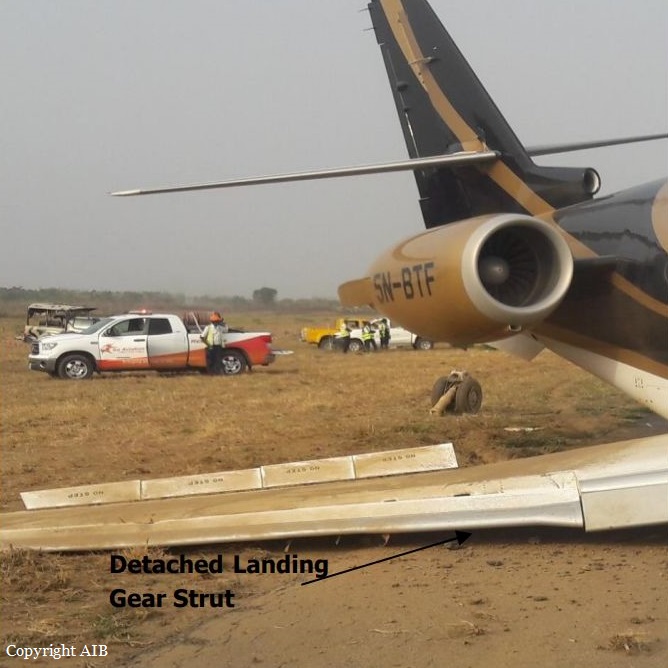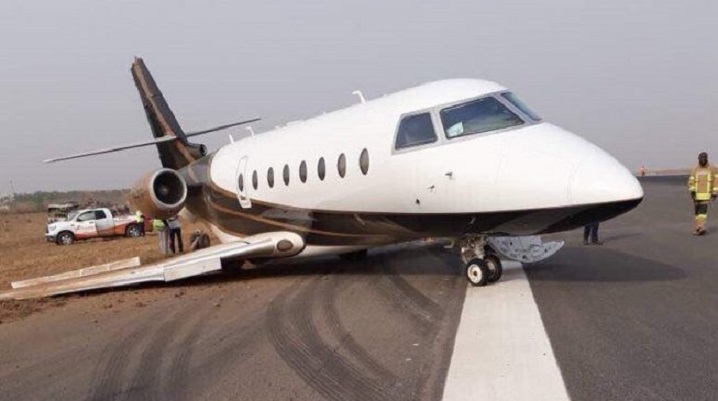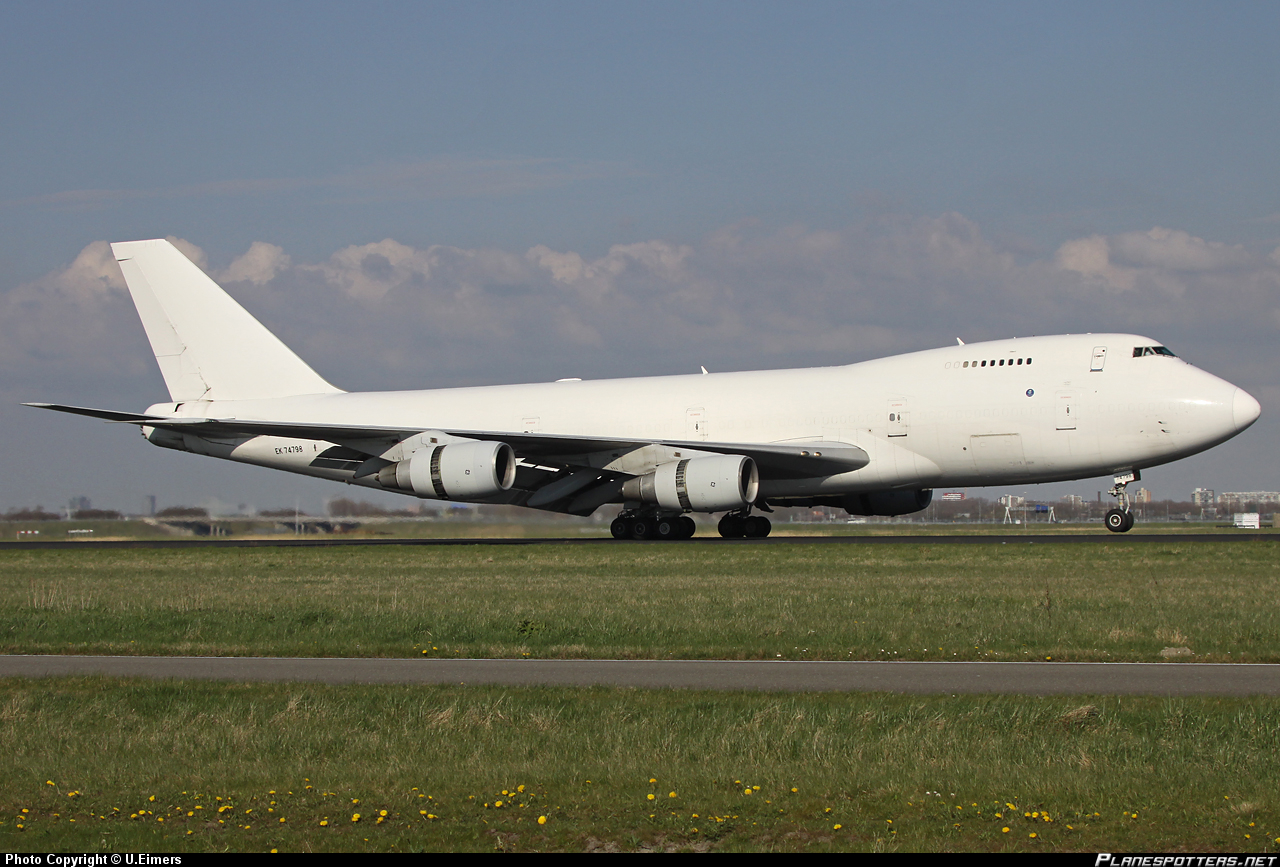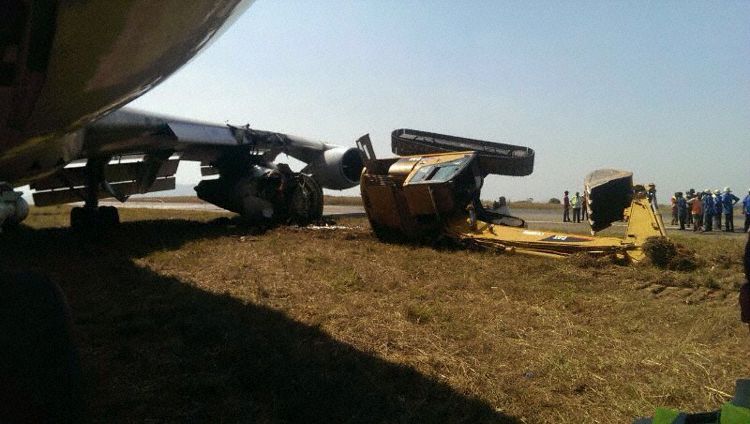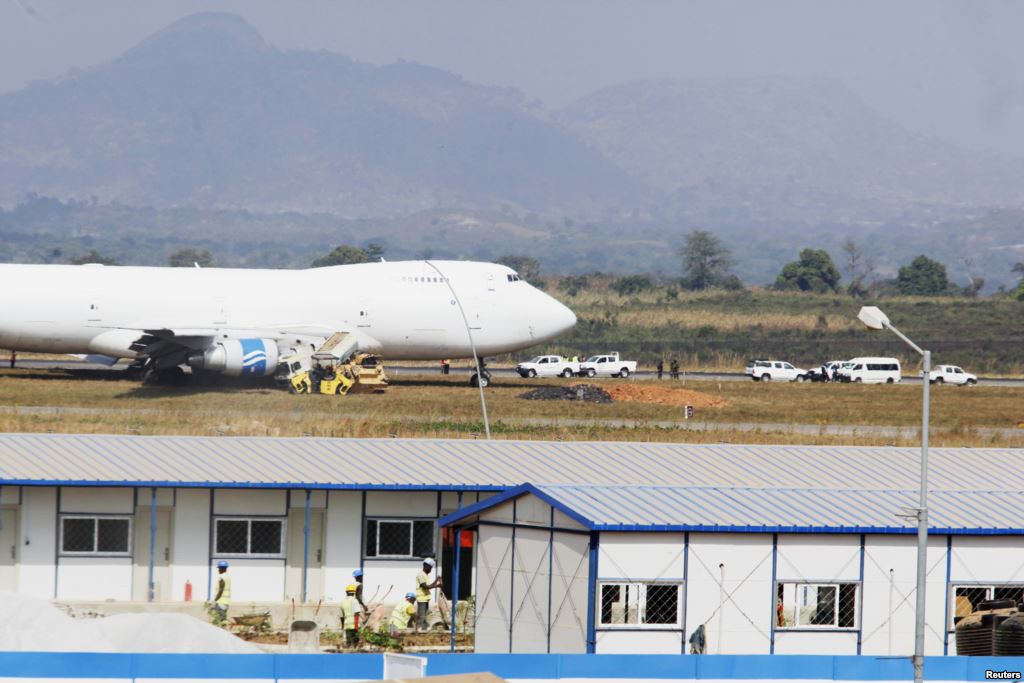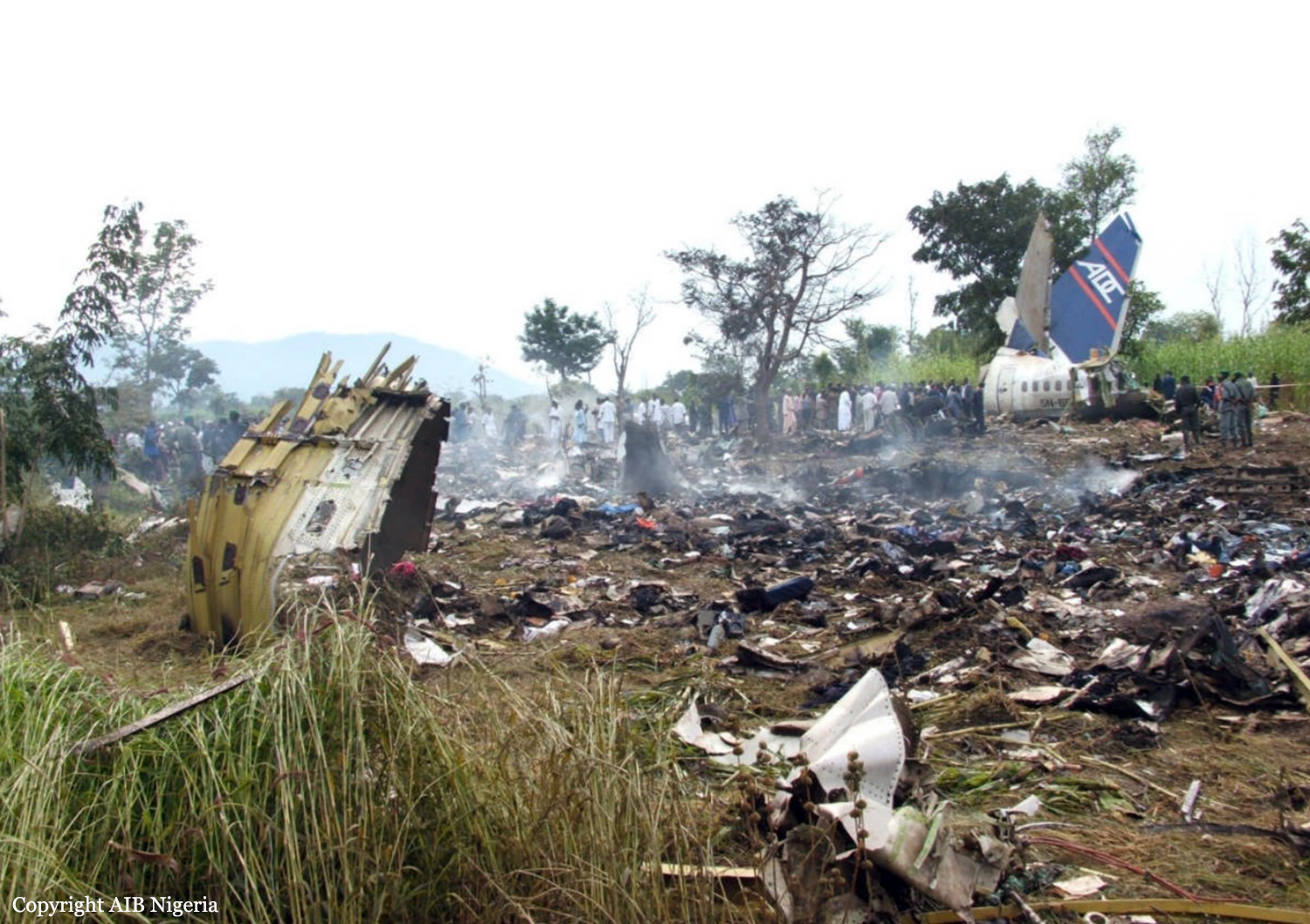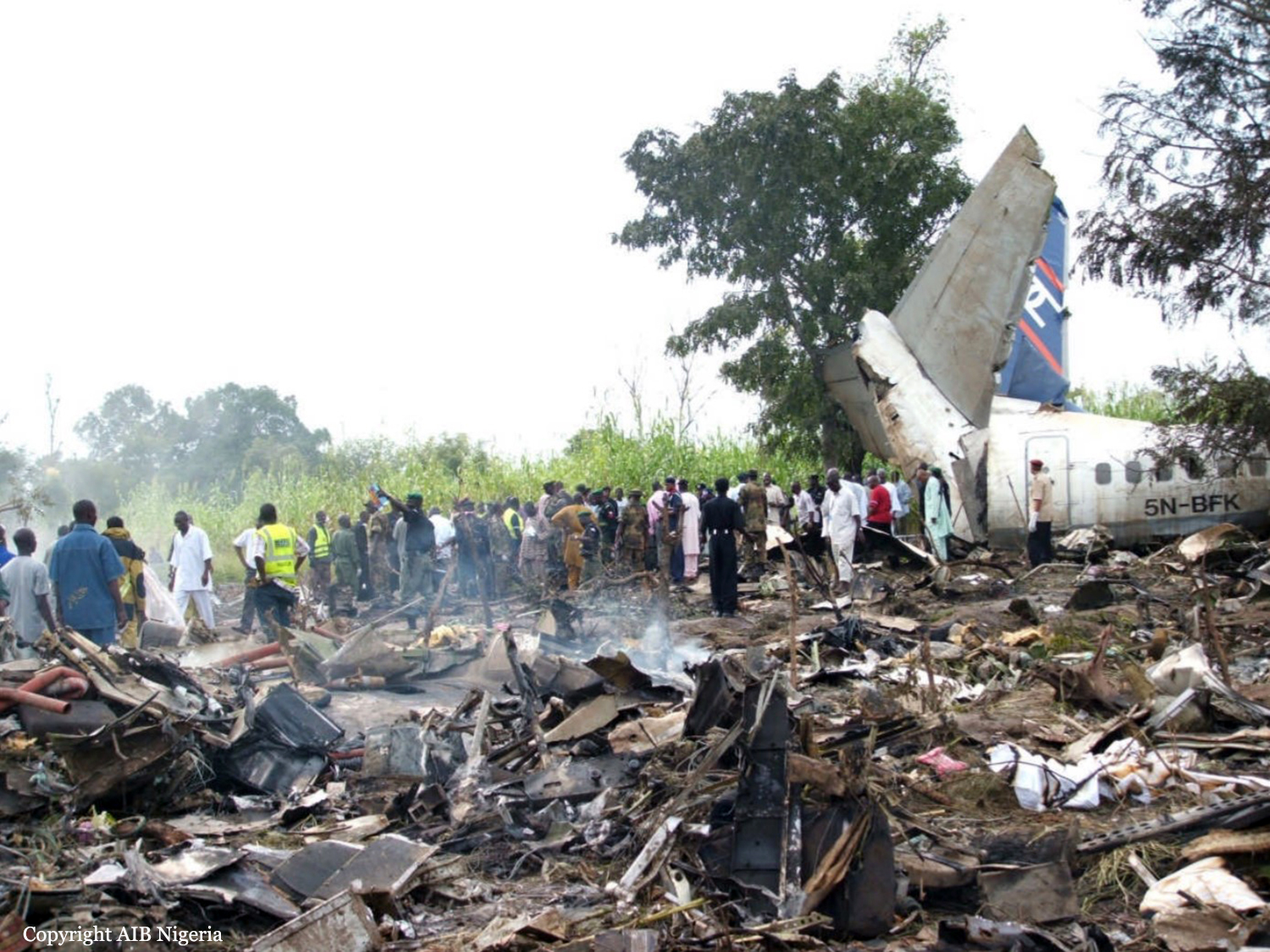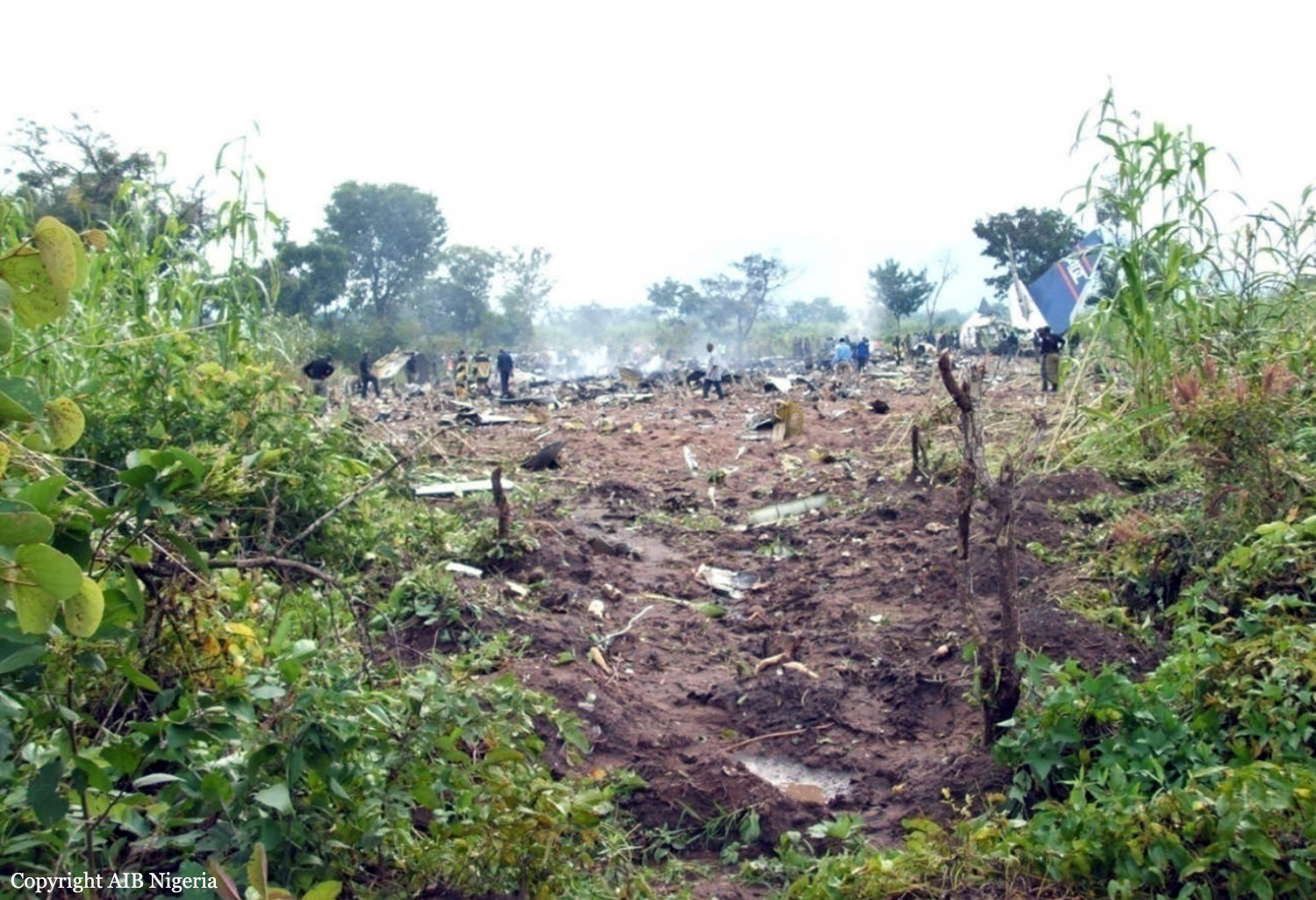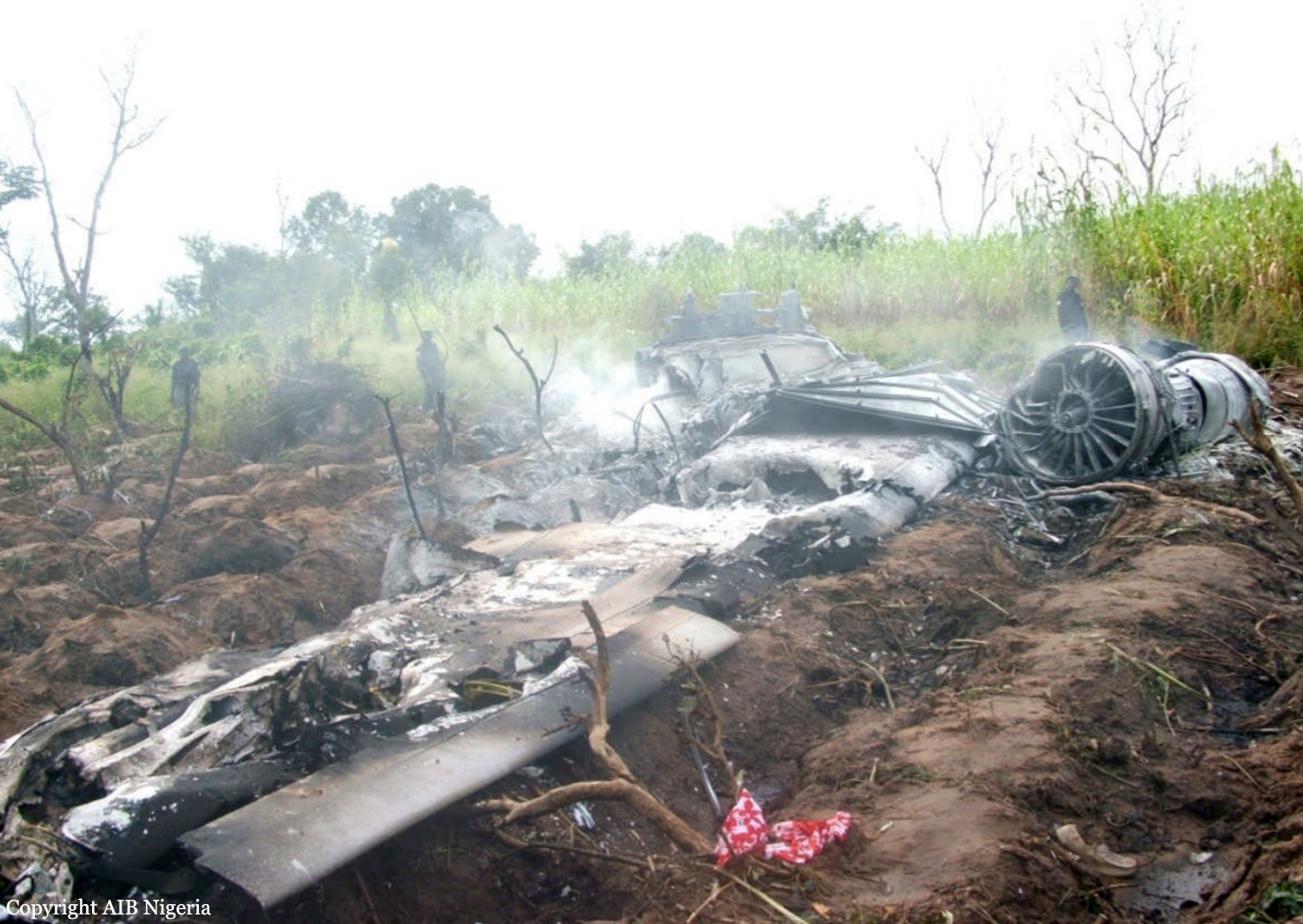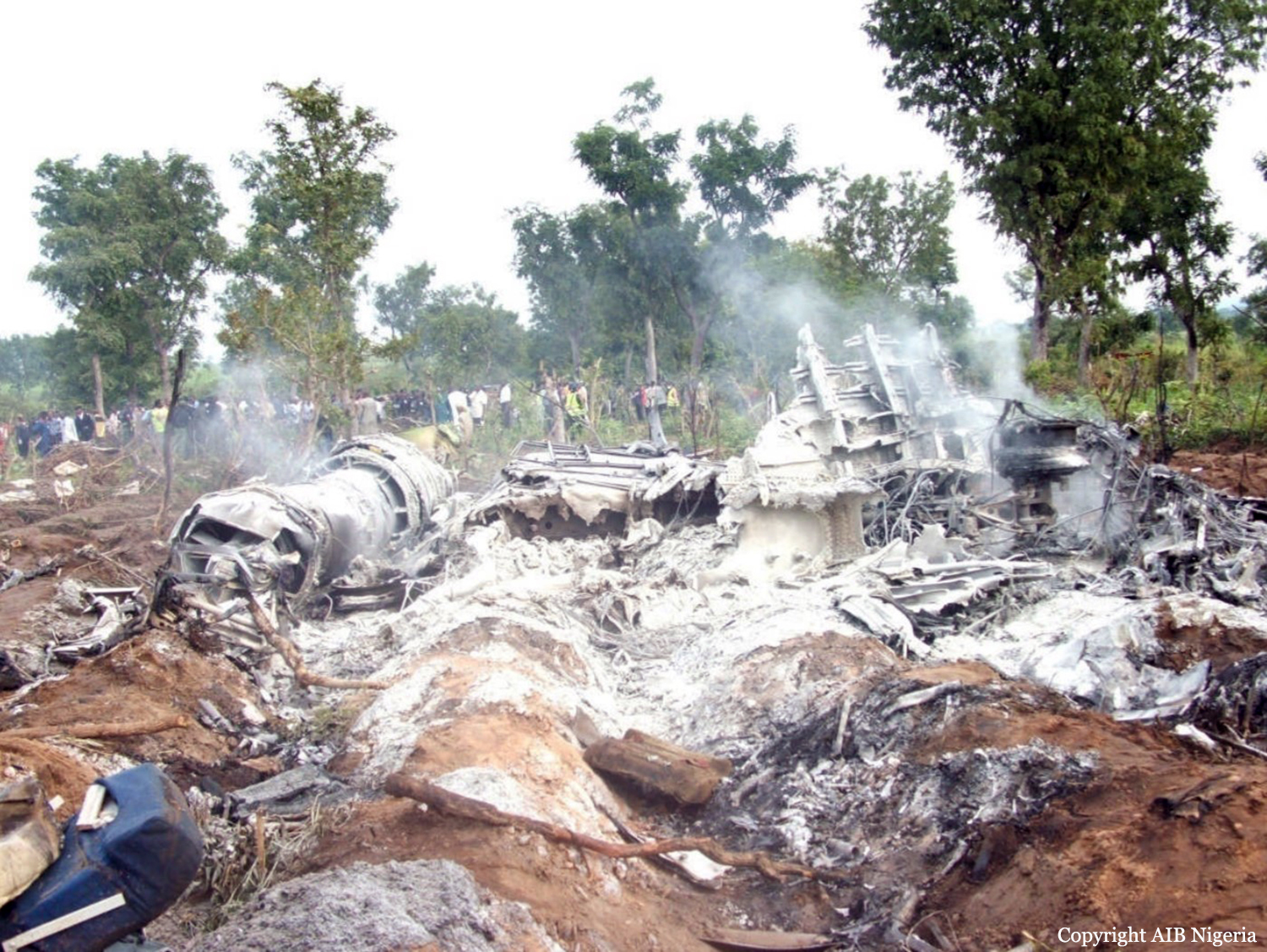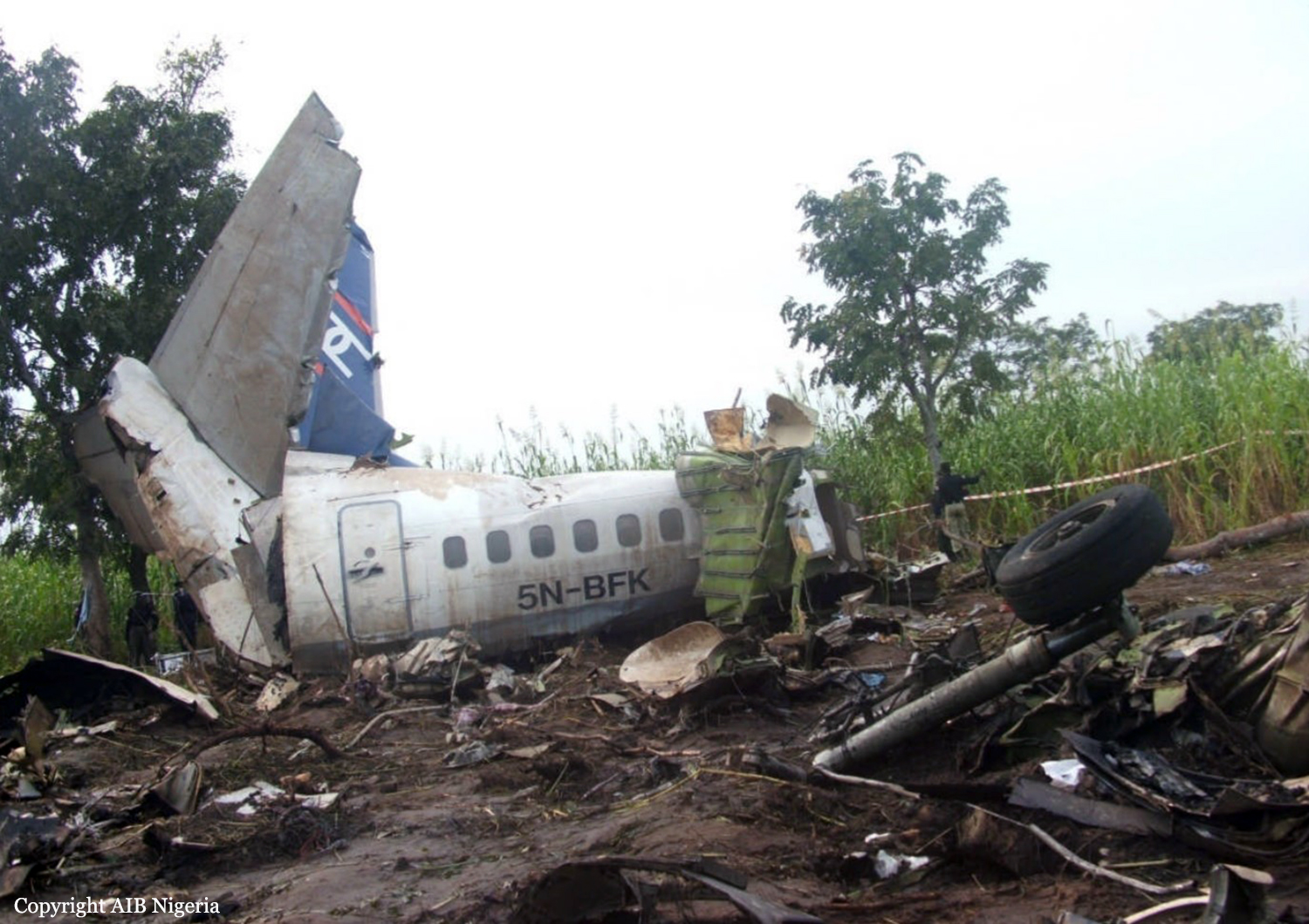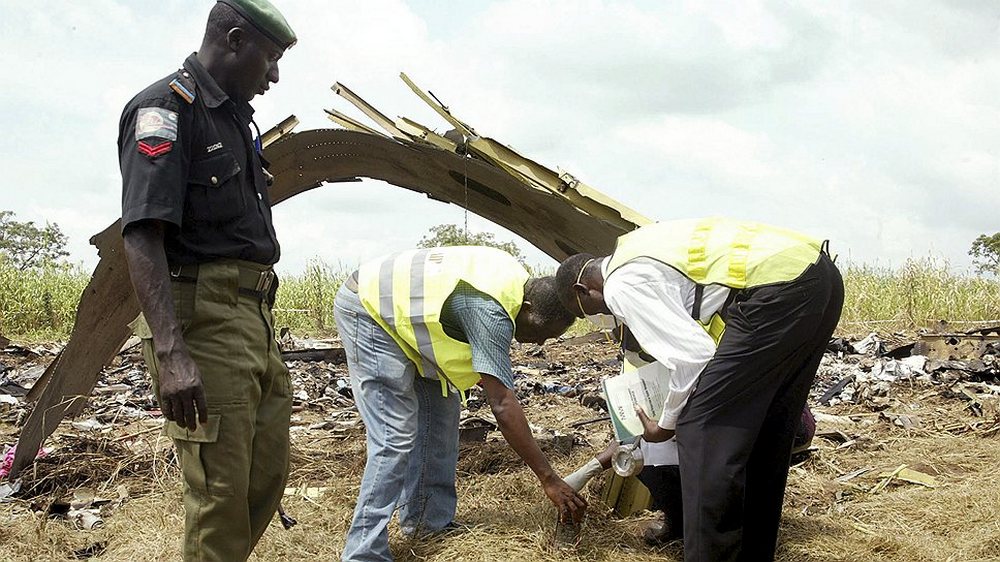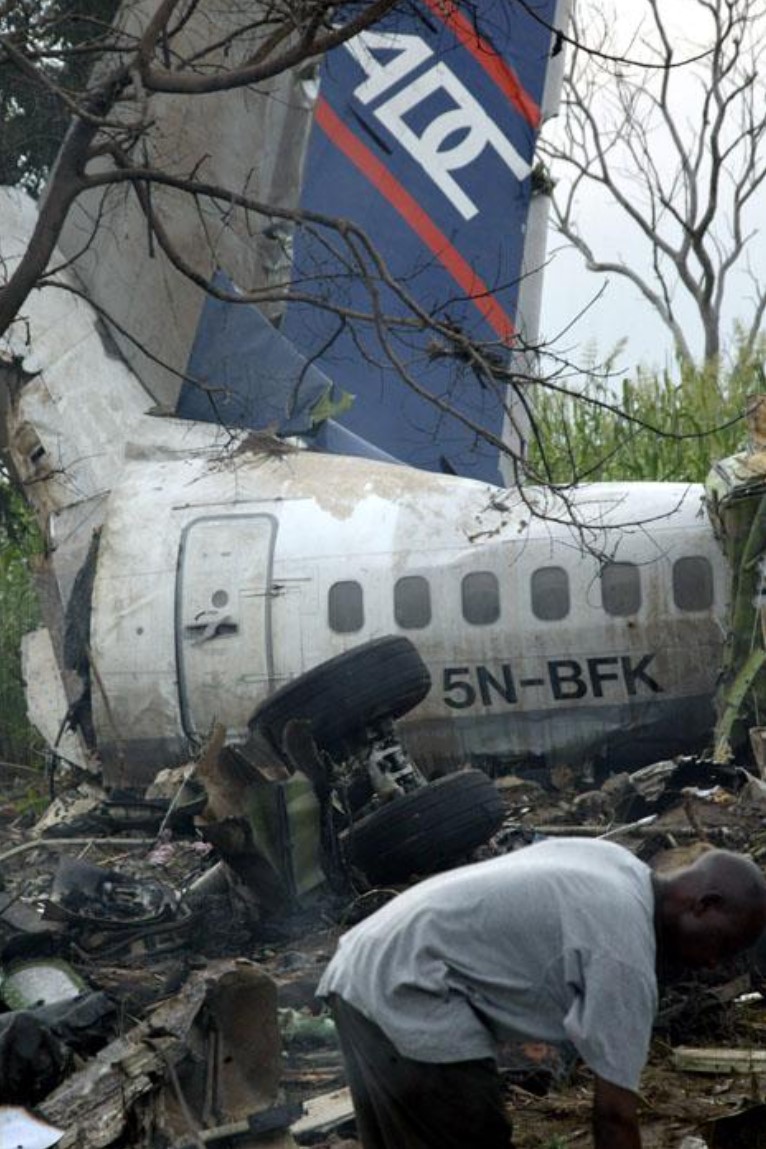Crash of a Boeing 737-4Y0 in Abuja
Date & Time:
Dec 11, 2024 at 1006 LT
Registration:
5N-JRT
Survivors:
Yes
Schedule:
Lagos - Abuja
MSN:
26081/2442
YOM:
1993
Flight number:
AJK206
Crew on board:
5
Crew fatalities:
Pax on board:
0
Pax fatalities:
Other fatalities:
Total fatalities:
0
Circumstances:
The airplane was on a cargo service (flight AJK206) from Lagos with a crew of five on board. After landing on runway 22 at Abuja-Nnamdi Azikiwe Airport, the airplane veered off runway to the right. Contacting soft ground, it lost a gear and came to a halt in a ditch. All five crew members escaped uninjured.
